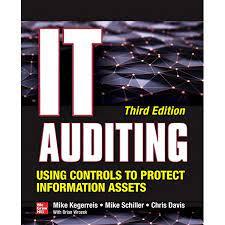Question
1) The privilege of a CPA is best described by which of the following: a. The privilege requires the CPA not to divulge knowledge about
1) The privilege of a CPA is best described by which of the following:
a. The privilege requires the CPA not to divulge knowledge about the client that was obtained while rendering accounting services to a client, even if the CPA is subpoenaed to appear in court in a criminal case or civil case.
b. The privilege requires the CPA to take the witness stand in a federal civil tax proceeding, and requires the CPA to be sworn in as a witness, but legally permits the CPA not to testify even if the client wants the CPA to testify.
c. The privilege requires the CPA to take the witness stand in a federal civil tax proceeding, and requires the CPA to be sworn in as a witness, but legally permits the CPA not to testify only if the client wants the CPA not to testify.
d. The privilege requires the CPA not to divulge knowledge about the client that was obtained while rendering accounting services to a client, but does not permit the CPA to refuse to answer questions in court upon being sworn in as a witness.
e. None of the other choices are correct.
2) In determining whether someone can be claimed as a dependent as either a qualifying child or qualifying relative, which one of the following, if any, is correct?
a. The portion of a scholarship attributable to expenses other than books and tuition is included in the gross income test of a qualifying relative, but is excluded from the support test of a qualifying relative.
b. The portion of a scholarship attributable to expenses other than books and tuition is included in the support test of a qualifying relative, but is excluded from the gross income test of a qualifying relative.
c. The portion of a scholarship attributable to expenses other than books and tuition is included in the gross income test of a qualifying child, but is excluded from the support test of a qualifying child.
d. The portion of a scholarship attributable to expenses other than books and tuition is excluded from the gross income test of a qualifying relative, and is excluded from the support test of a qualifying relative.
e. None of the other choices are correct.
3) Kirby is in the 15% tax bracket and had the following capital asset transactions during 2016:
Long-term gain from the sale of a coin collection $11,000
Short-term gain from the sale of a land investment 10,000
Short-term gain from the sale of a stock investment 2,000
Kirby's tax consequences from these gains are as follows:
a. (15% $13,000) + (28% $11,000)
b. (15% $23,000)
c. (0% $10,000) + (15% $13,000)
d. (5% $10,000) + (15% $13,000)
e. None of these choices are correct.
Step by Step Solution
There are 3 Steps involved in it
Step: 1

Get Instant Access to Expert-Tailored Solutions
See step-by-step solutions with expert insights and AI powered tools for academic success
Step: 2

Step: 3

Ace Your Homework with AI
Get the answers you need in no time with our AI-driven, step-by-step assistance
Get Started


